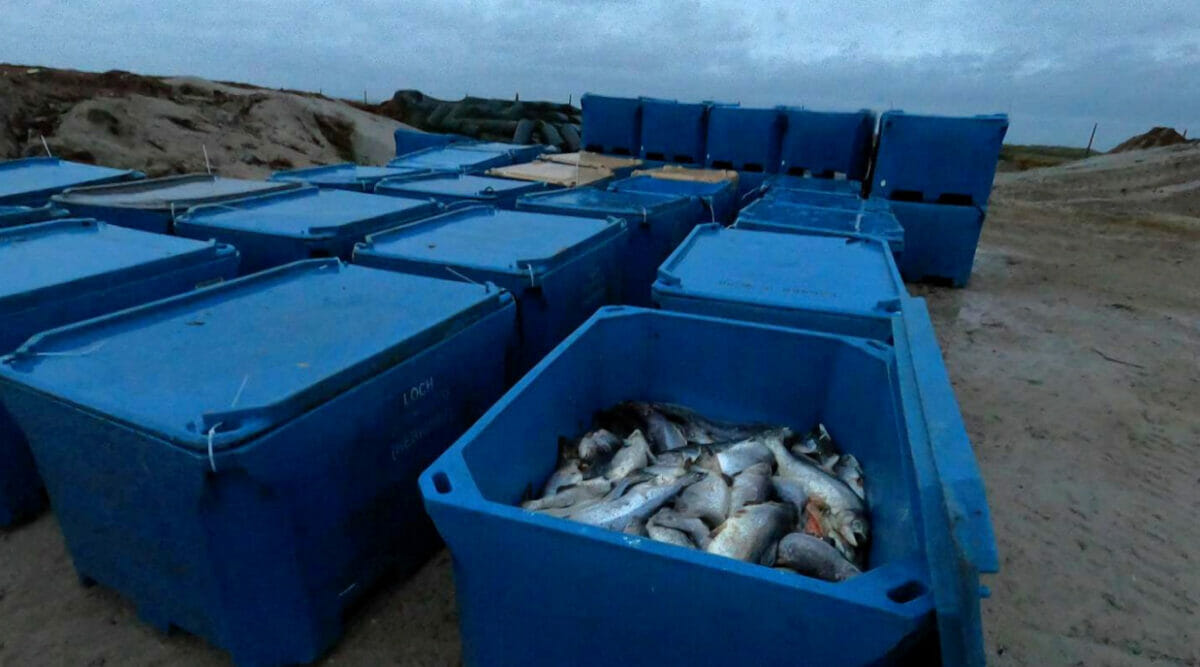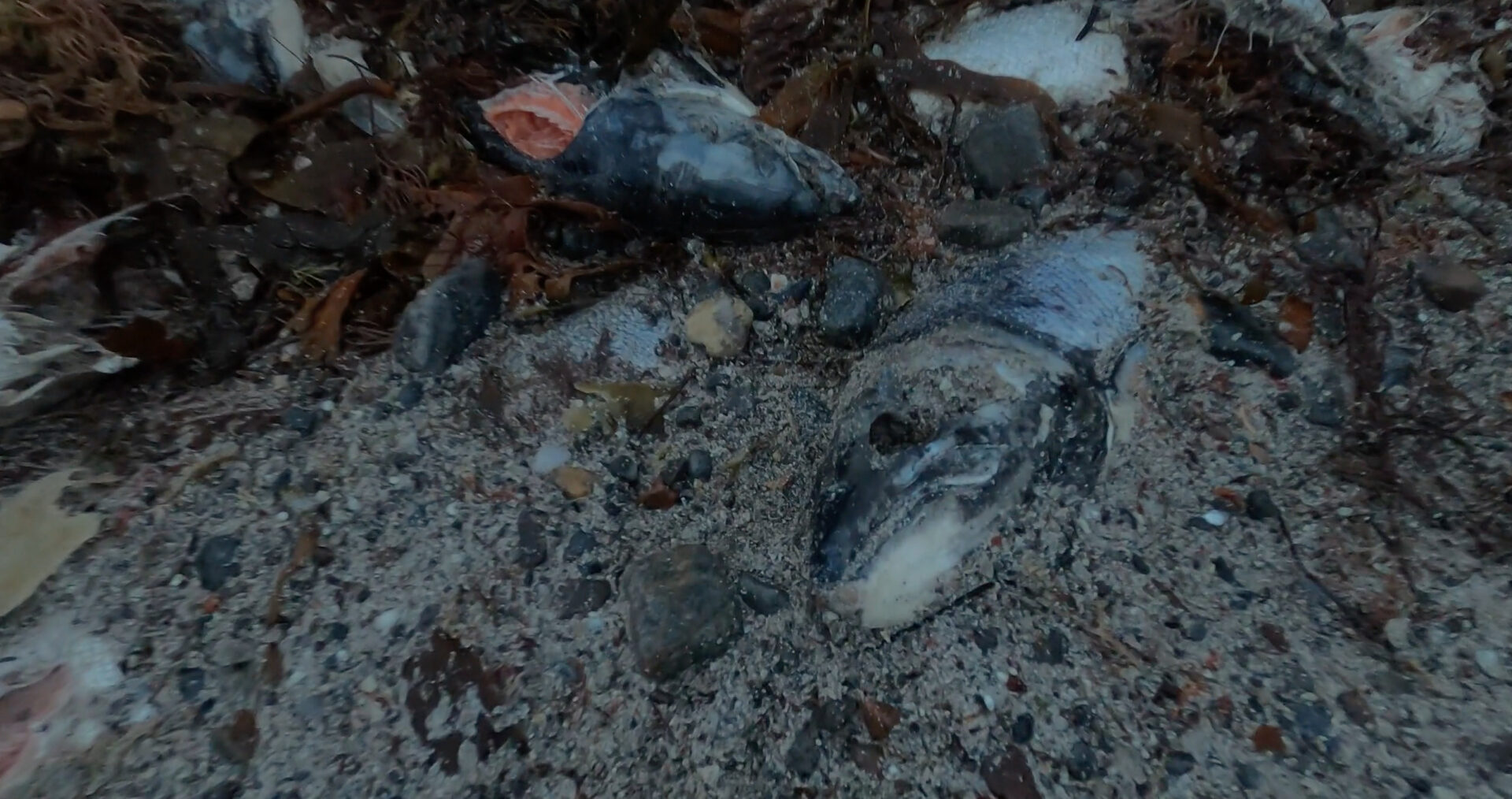Whiteshore Cockles on North Uist has been allowed by the Scottish Government to keep burying dead salmon from fish farms in breach of environmental rules since 2016, until a new method of disposing of the fish is set up.
But the company attracted the attention of authorities on 29 May after Police Scotland received reports that it was burning items including plastics, gas canisters and metals and emitting “huge billowing black smoke clouds”.
One activist claimed Whiteshore Cockles was a “noxious neighbour which should be closed down immediately”.
Communications we obtained under freedom of information show that police contacted the Scottish Environment Protection Agency (Sepa) after it visited the site with the fire service – after the fire had been extinguished.
In a subsequent letter to Whiteshore Cockles, Sepa said it had learned that “controlled waste” – which includes household, industrial and commercial waste – had been burned on its land, and warned them it was against the law.
“Please note that should Sepa substantiate that you knowingly permit or knowingly cause any unauthorised burning of controlled waste at this location in future then we will take enforcement action,” Sepa wrote.
In reply, a Whiteshore Cockles representative replied to explain “a brief outline of events that led to the unfortunate burning of plastic waste material”. They claimed someone was tasked with burning old straw bales and had notified the fire service, but that sparks spread to waste materials waiting to be collected when the fire was left unattended.
However, Sepa responded to say there had been “a contradiction between your version of events and what Sepa has been informed by Police Scotland, mainly over whether the burning of inappropriate materials was accidental or not”.
Locals and campaigners first raised concerns about the landfill in 2005, which has caused a stench that some residents say has left them unable to keep their windows open.
Don Staniford, a high profile activist who is director of Scamon Scotland, said: “Whiteshore Cockles is a noxious neighbour which should be closed down immediately”.
“The reputation of Scottish salmon has gone up in smoke. The flames from the funeral pyre that is salmon farming in Scotland is enough to heat the whole of the Western Isles.”
A Sepa spokesperson said: “Sepa was informed by Whiteshore Cockles Limited on Monday 29 May of an issue relating to the burning of waste on its North Uist site. The company was reminded that the burning of waste was not permitted, and a warning letter was sent to formalise this.
“No further complaints about burning have been received by Sepa. Sepa officers have since been on site and no concerns about burning practices have been witnessed.”
Whiteshore Cockles declined to comment.
When will the fish dump close?
Authorities have privately warned that the landfill ”could cause a major environmental problem” and the government’s temporary exemption order was set to be revoked by 31 March 2022, with dead fish to instead be processed by a drying plant built with £604,000 of public funding.
But we revealed in January that the pits remained open after the company’s applications for a pollution prevention control permit to operate the drying plant were rejected.
Sepa confirmed that it finally issued Whiteshore Cockles a permit on 5 June 2023, and would support the transition to the new facility and ensure the permit was adhered to.

The Scottish Government said now that the permit has been greenlit, it was “committed to ensuring that Whiteshore Cockles Limited is working towards being fully compliant with the Animal By-Products (Enforcement) (Scotland) Regulations 2013 without the need for any derogation , and no longer burying any fish waste on their site.”
But a spokesperson added: “However, we understand that additional equipment is required for effective operation of the fish waste dryer, and as a result, we are currently considering a further request to temporarily extend the fish waste burial derogation to 31 January 2024.”














